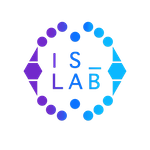Maga-Nteve, C., Tsolakis, N., Meditskos, G., Karakostas, A., Vrochidis, S., and I. Kompatsiaris. (2021). Ontology-based semantic model for health data interpretation. Proceedings of Fourth International Workshop on Semantic Web Meets Health Data Management (SWH), the 20th International Semantic Web Conference (ISWC), Springer, Virtual Conference 24 - 28 October 2021
Author(s): Maga-Nteve, C., Tsolakis, N., Meditskos, G., Karakostas, A., Vrochidis, S., and I. Kompatsiaris.
Keywords: Semantic interpretation, Ontology, Health-care data, Data interoperability
Tags:
Abstract: New opportunities for improved personalized healthcare have emerged due to the re-cent advances in the development of modern methods which reinforce personalized early risk prediction, prevention and intervention. Using semantic techniques for data integration has be-come pivotal as it can deliver different ways to represent data, automating the process of data integration, and providing the ability to query semantically. In this paper, we propose a new semantic data model in which health information derived from Parkinson’s, Multiple Sclerosis, and Stroke (PMSS) patients is systematically analyzed to generate and improve knowledge that will be transferred to patient care in order to design and develop innovative health risk prediction and intervention tools. Furthermore, this project focuses on providing new opportunities for improved personalized healthcare and prevention that have been created by new designs and developments of innovative health risk prediction and intervention tools. A core ontology is currently being designed within the ALAMEDA project to deal with the semantic interoperability across heterogeneous datasets along with a semantic framework to concrete the generated heterogeneous data through a shared ontology. The ontology model development and the requirement elicitation will be done based on the components’ capabilities and use case requirements. The heterogeneous and dynamic data will be subjected to annotation through the development of semantic models for data sharing and usage apart from being interpretable
